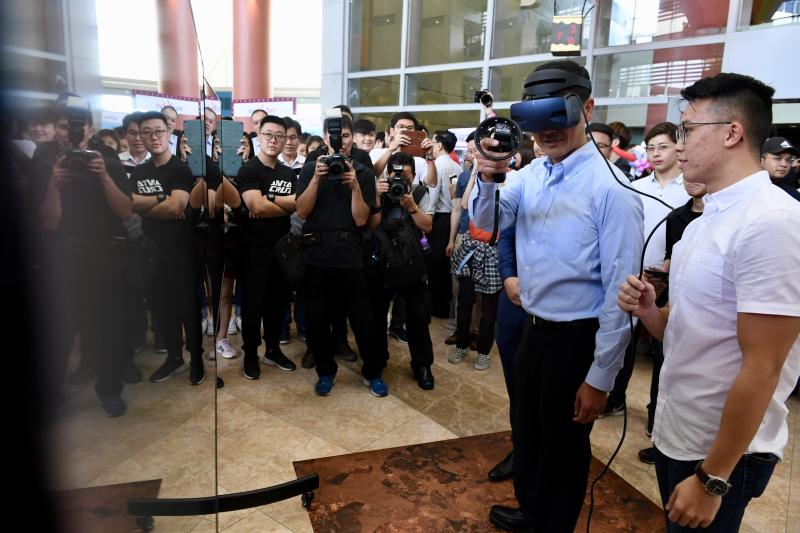Fresh poly grads on apprenticeship track command higher pay than peers: Ong Ye Kung
Sign up now: Get tips on how to help your child succeed

Education Minister Ong Ye Kung tries out a virtual reality project in Nanyang Polytechnic. He’s guided by SkillsFuture Earn and Learn Programme student Brian Koh.
ST PHOTO: DESMOND FOO
SINGAPORE - Polytechnic graduates who took up a programme that allows them to work and study at the same time are earning more than their peers, said Education Minister Ong Ye Kung on Friday (July 12).
A year-and-a-half after completing the programme, the graduates from the SkillsFuture Earn and Learn Programme (ELP) earned about 10 per cent more than those who have a polytechnic diploma.
He said the majority of ELP graduates went on to work, while less than 4 per cent pursued further studies in the autonomous universities.
For those working, their monthly pay was an average of $2,900 six months after completing their studies.
In comparison, the median salary of polytechnic graduates in full-time employment was $2,350 six months after graduation or completing national service, according to the latest Graduate Employment Survey.
Mr Ong, who was speaking at a work-learn event at Nanyang Polytechnic, said of the results, which were compiled by the Ministry of Trade and Industry: "There is a meaningful premium if you do the ELP after polytechnic graduation.
"In fact, the employment outcomes of ELP graduates compare very favourably to those polytechnic graduates who move on to private degree programmes, not forgetting that students of private degrees pay high fees, while ELP students earn a salary and chalk up work experience while studying."
He said that SkillsFuture Singapore, a statutory board under the Education Ministry, will be commissioning a Graduate Employment Survey for ELP graduates later this year to gather more data.
The ELP has grown over the years, he added, and it now has 123 programmes that cover a range of 34 sectors across diploma, post-diploma and degree levels. It started with 15 programmes across 12 sectors in 2015.
As of June, about 4,200 fresh polytechnic and ITE graduates have enrolled in the ELPs, up from 150 in 2015.
The number of employers in the ELP has also increased from 46 in 2015 to about 1,000 today.
Mr Ong said that with the expansion of the scheme, 8 per cent of polytechnic graduates today go on to pursue these ELPs at the post-diploma level.
Under the programme, an ITE graduate gets a diploma and a polytechnic graduate receives an advanced or specialist diploma.
Mr Francis Wong, who graduated from Nanyang Polytechnic in 2017 with a diploma in industrial design, joined the ELP last year as he wanted to gain more work exposure.
He goes for class once a week and works the other four days as a graphic designer at Signs And Wonders, a company that manufactures outdoor signs and other products.
"I didn't want to go straight to a degree as I wasn't sure if I could cope with the university curriculum, but I still wanted to keep my mind alert by studying while getting work experience," said Mr Wong, 25, who will graduate in September with a specialist diploma in design and make, which covers industrial and interior design.
"I think it's also better to have industry knowledge so you can see the relevance of what you're studying and do better."


